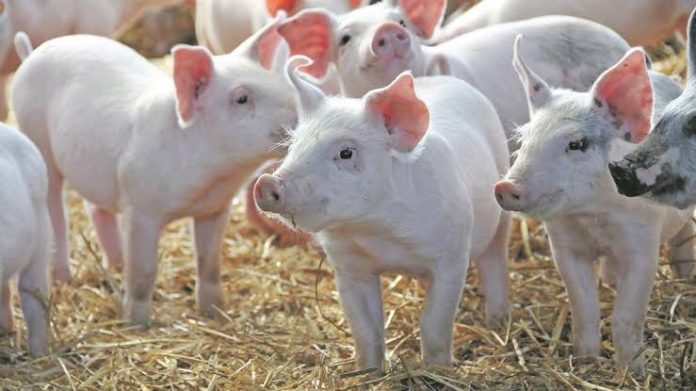Six Important Tips for Buying Piglets
1. Avoid Auctions
There are lots of reasons to avoid local auctions when you’re shopping for pigs. It is usually next to impossible to trace the background on animals sold at auctions so you are often getting a breeder’s leftovers. They also might not be the healthiest.
 Learn More
Learn More
Sometimes, animals sold at auctions are also deliberately drugged to make them more docile, too. This can give you a false impression of an animal’s demeanor that can come back to haunt you.
2. Clipped Teeth
Many pork producers – myself included – clip piglet teeth a few days after they are born. This is done to prevent them from injuring each other and from injuring their mother’s teats as they nurse.
We have our own reasons for clipping teeth, but many people view this as a highly unethical and inhumane practice. Depending on your opinion on the issue, it pays to ask the question of the breeder ahead of time.
3. Castration
Castrating pigs is highly controversial – just as controversial as the teeth clipping conversation, in fact.
There are several reasons to consider castrating pigs. Of course, if you’re against castration for whatever reason (some people find it to be cruel), know that you will probably be able to get a better deal on your pigs. However, you may have additional problems to deal with later on, too – so it could be a wash.
In general, I recommend castrating male pigs and searching for piglets who have already been castrated. As somebody who has to go through this process every year, I can tell you that castrating male piglets is not enjoyable and definitely not for somebody who is new to raising pigs.
However, castration is often essential. If you raise piglets of opposite sexes, know that females can get pregnant a lot sooner than you might have your pigs ready to go to the market.
If there are any delays in butchering your pigs, you may end up with extra little piggies running around! Male pigs, like other male animals, produce testosterone, that can taint the flavor of the meat.
My advice? Look for pigs that have been castrated, or buy all-females. Male pigs need to be castrated at around 6 weeks of age. If you’re buying a non-castrated pig after this date, be wary.
4. Vaccines/Potential Diseases
You will also need to check with the farmer or breeder to find out whether the herd was subjected to any diseases. Also, you need to find out if it has been vaccinated.
There aren’t many vaccines that are considered “universal” for pigs. This is different from other kinds of livestock (for example, it is universally recommended that all sheep be vaccinated with CDT).
If there are certain diseases that are prevalent in your area, make sure the pigs have been vaccinated. One disease that many breeders recommend vaccinating against is swine erysipelas, also known as diamond skin disease.
You might also want to ask about internal parasites. Pigs don’t necessarily need to be chemically dewormed. As long as they are on good ground and are in a solid, healthy condition, you can avoid it.
READ ALSO: THREE STAGES OF OPTIMIZING PIGLET GUT HEALTH
Regardless of where you stand in regards to chemical deworming, it’s a good idea to at least ask about parasite control. Whether it is a drug or simply garlic, it’s good to know what your pigs have consumed.
5. Transportation
You need to have a way to get those new piglets home! Make sure you figure this out before you commit to buying piglets two hours away (been there).
You can move piglets in a box on the bed of a pickup truck, in a trailer, or in some other kind of contraption. However, make sure that your method of moving piglets is not only comfortable for the piglets (you’ll need to factor in the weather) but also roadworthy and legal.
Most piglets travel quite well, particularly if they have companions with them. Do not make the mistake of assuming you can just carry your piglet home on your lap, however!
READ ALSO: Five Practical Tips to Improve Farrowing Rates
6. Quarantining New Arrivals
Regardless of how much you trust the farmer from whom you purchased your piglets if you are buying just a few piglets and introducing them to an existing herd, please quarantine them upon their arrival.
There are all kinds of diseases that can be transmitted between pigs. You often won’t have any indication that a piglet is sick until it has been at its new destination for quite some time. One common problem of this nature is shipping fever. Also known as Pasteurella, it’s a disease that is commonly found in pigs, horses, cattle, and other animals.
READ ALSO: Colostrum Management and Piglet Survivability
Shipping fever takes some time to show symptoms, but it can rapidly infect the rest of your herd if you aren’t careful. Give your piglets a few weeks on their own to make sure they don’t get everyone sick – and so you can treat them more easily if they do show symptoms.















